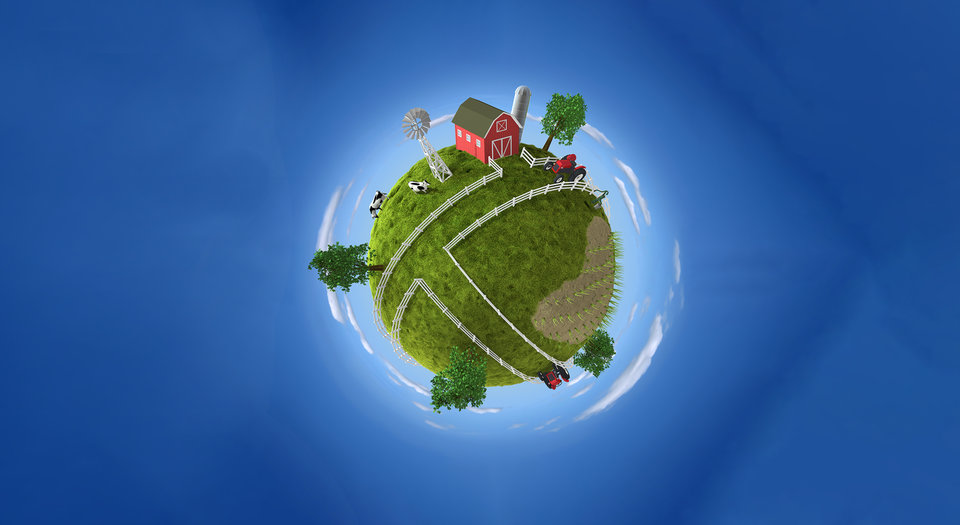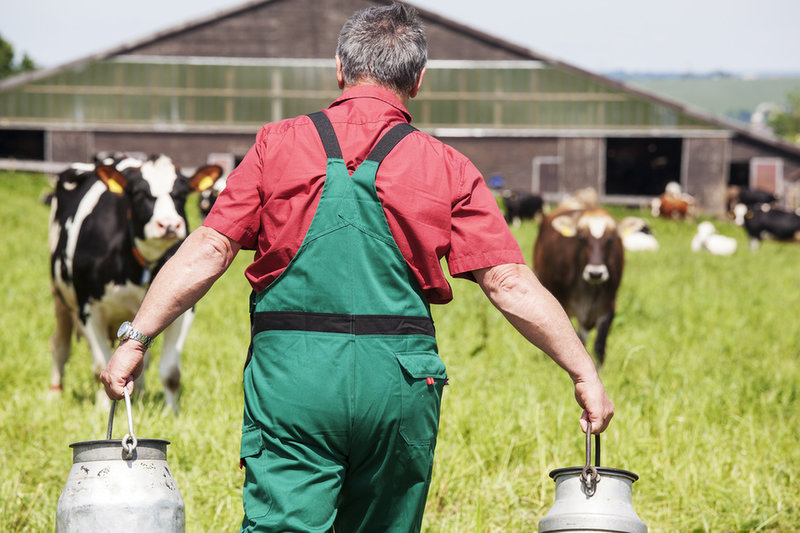
Sustainability
Why planet-based diets are key to meeting agricultural emissions goals
Shifting diets away from meat and dairy to plant-based protein will be vital in driving down greenhouse gas emissions from agriculture but does a broader concept of a "planet-based diet" hold the key to achieving reductions consistent with the Paris climate goals? Ben Cooper explores the implications for food companies.
T
he mammoth challenge facing the food sector in reducing agricultural greenhouse gas (GHG) emissions on a scale consistent with the Paris climate goals would be too daunting to contemplate were it not for the saving grace of its near-perfect alignment with positive health outcomes.
While research suggests health concerns have been the more significant driver of the plant-based boom to date, the potential for the win-win of better health and a healthier planet to sustain and accelerate the trend is undeniable.
Planetary boundaries
However, a thought-provoking report from the independent conservation organisation WWF, released in November, sets out a more detailed and nuanced analysis of the relationship between dietary requirements and environmental objectives relating to GHG emissions and other critical issues such as biodiversity loss.
Examining how balancing nutritional requirements with environmental impacts varies across the 147 countries evaluated, the report concludes that there is no "one-size-fits-all solution".
Rather, flexible and adaptable models are required that can be tailored to different cultures, while still delivering the required human health benefits and low environmental impacts.
Plant-based foods will feature prominently but the over-arching concept is the "planet-based diet", which includes meat and dairy.
"Everyone switching to a plant-based diet is not feasible in certain countries where there are serious nutrition deficiencies and, in other countries, it's not necessarily practical because of consumer preferences," says Katherine Devine, director for business case development and markets at WWF.
The organisation’s report adds that dietary transitions "must be part of a holistic food system transformation designed by multiple stakeholders and be accompanied by nature-positive production practices and reductions in food loss and waste".
While the report speaks to the challenge the agri-food sector must confront in relation to over-intensified and unsustainable animal protein production, WWF's pragmatic approach and willingness to engage with industry will be welcomed by food manufacturers.
"The reality is that people are going to consume dairy and animal protein, so we need to work with producers and meet them where they are," Devine says. However, she adds that retaining a "critical eye" is also important. "We need to look at all these solutions together. That does not mean they get a free pass."
The system can only work if we have a strategy to reduce food waste. It is not possible to accept that the world is wasting 30% of the food it is producing today.
From the organisation’s point of view, arguably the most important contribution is providing consumers with product choices that make the necessary shifts in diets desirable.
"Diets have to be rebalanced," says Eric Soubeiran, vice president of nature and water cycle at Danone. "We are advocating for flexitarianism [and] should make sure we offer choices to consumers so they can balance the types of protein they are using."
Soubeiran also stresses the importance of addressing the issue of food waste: "The system can only work if we have a strategy to reduce food waste. It is not possible to accept that the world is wasting 30% of the food it is producing today."
Meanwhile, Robbert de Vreede, global executive vice president for foods at Unilever, stresses the importance of making plant-based alternatives sufficiently desirable in countries, such as in China, where eating more meat protein is aspirational.
"In China, they aspire to eat meat because that's a sign of development and we need to find a way where, as they embark on getting the right kinds of proteins in their diet, it is not necessarily animal protein."
Like Danone, Unilever looks to support consumers following a flexitarian diet and this is compatible with both its commercial and environmental aims.
"It's about a balance," de Vreede says. "I think it's easier to convince the world population to become more flexitarian than to convince the population they all need to become vegan.”
He points to The Vegetarian Butcher, the Dutch business Unilever acquired in 2018. “We believe that the power of [The Vegetarian Butcher] brand is that it speaks to the people who love meat and we're after the big group, which is smart from a business perspective because it's a bigger market but also it's smart from a sustainability perspective because it has a bigger impact."
Room for improvement
Nevertheless, offering a mixed protein portfolio sustainably will only be possible for food companies if their meat and dairy suppliers raise their game on environmental impacts, as the Coller FAIRR Protein Producer Index, also published in November, showed.
According to the Index, some 86% of major meat and dairy suppliers "do not declare or set" meaningful reduction targets for all greenhouse gas emissions, which the investor network said is "undermining" the climate commitments of companies such as McDonald’s and Nestlé.
The lack of progress fosters the narrative that animal protein is irredeemable and inherently unsustainable. While some may hold that view, including some leading figures in the booming plant-based protein sector, it is not shared by WWF or the vast majority of food manufacturers.
"Animal husbandry is essential to circular agriculture because, through animal husbandry, you can balance the cycle of nitrogen and phosphorus within a farm. A grazing-based system of animal husbandry is absolutely compatible with planetary boundaries," Soubeiran points out.
Food companies tend to refrain from openly upbraiding their animal protein suppliers, recognising the challenges they face and the progress they are making.
There is an "understandable hesitancy" to criticise suppliers publicly, says FAIRR head of research Aarti Ramachandran because "they have these long-standing relationships with these suppliers. I expect there's a lot of behind-the-scenes engagement happening".
Driven by rising investor pressure, the protein sector is "now beginning to move rapidly", Ramachandran continues, adding nine of the 60 companies on the FAIRR Index have now set science-based emissions targets.

Livestock farming can play an important role in balancing nutrient levels in soil.
Disrupting dairy
The US dairy sector's Net Zero Initiative, meanwhile, is demonstrating what might be achieved at a sector-wide level. At WWF, Devine recently penned a positive paper on the programme, which she believes could be a compelling model of collective engagement on emissions reduction from which other animal protein sectors, such as poultry, pork, eggs, beef, and aquaculture, can learn.
According to Karen Scanlon, senior vice president for environmental stewardship at US trade body Dairy Management Inc., the programme aims "to develop the pathway for farms to reach the 2050 environmental stewardship goals", a set of voluntary targets centring on carbon emissions and on water use drawn up by the industry and wider stakeholders.
The programme sets out to "make sustainable practices and technologies more accessible and affordable to farmers", she explains.
It is an industry-wide initiative open to farms of all sizes. "We have to continue to take the learnings from the pilots and other efforts to refine some of the practices," Devine says.
"But I think the fact that the industry is both setting these targets and then putting their money where their mouth is in terms of these pilots to share learnings, so that it can be applied to a variety of producers, is really positive."
Scanlon adds: "From its inception, the strategy was to bring others to the table with farmers to provide their resources and expertise, and that is exactly what’s happening." Nestlé and Starbucks are participating in the programme, which Scanlon says "speaks volumes about their belief in dairy as a leader in sustainability".
While possibly underlining the extent to which traditional animal protein sectors must change to remain within planetary boundaries, the effusive remarks of Benjamin Ware, global head of responsible sourcing at Nestlé, also reflect the company's commitment to supporting the transformation process.
"It's about completely redesigning a dairy farm and that's what we loved," Ware explains. "With this, we were not here to fix something: we were here to create a new business model."